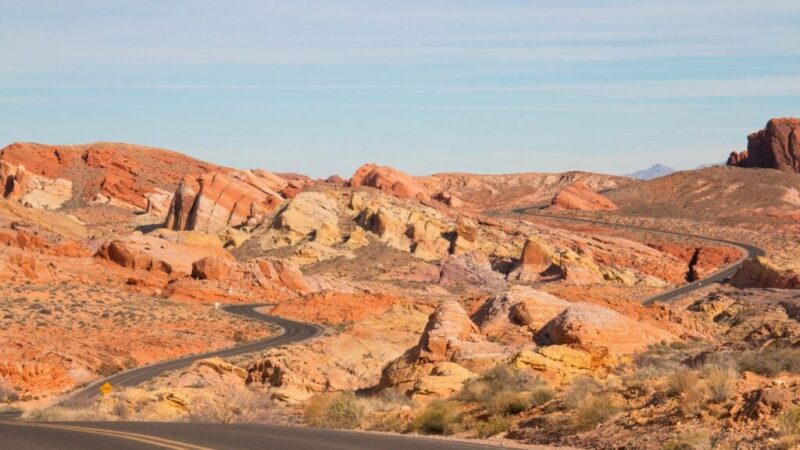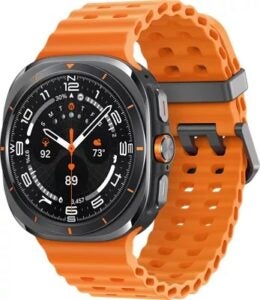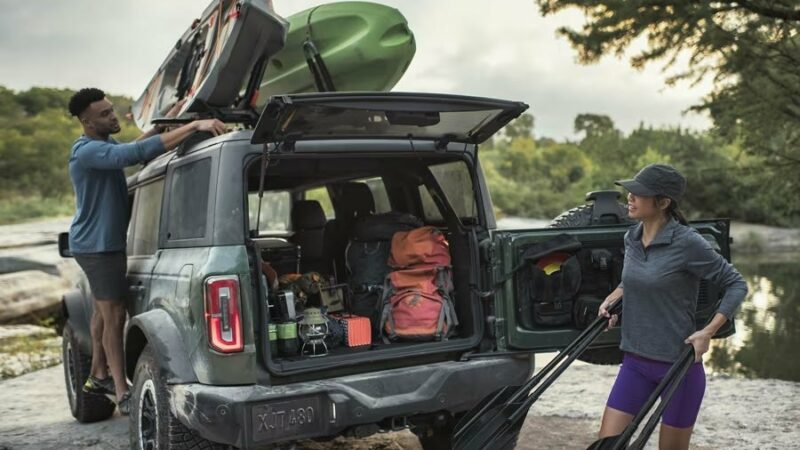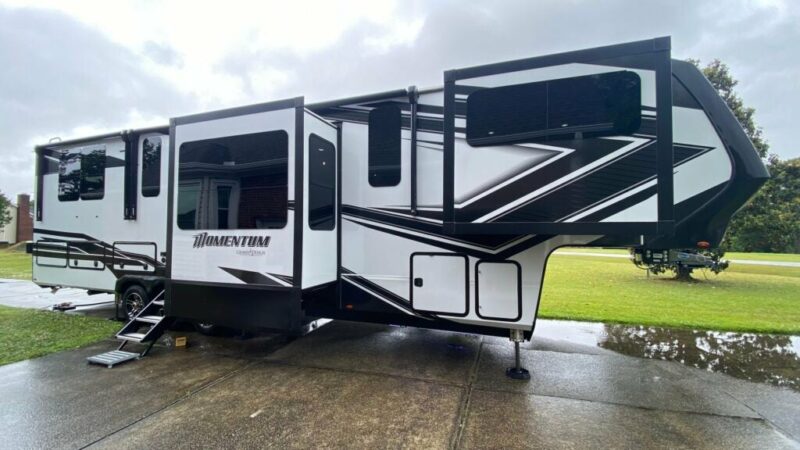Life on the Road Can Be Isolating. Two Full-Timers Share Their Tips for Finding Community
Creating community is one of the biggest cruxes of full-time RV life. Here’s how these retired Air Force veterans build a vibrant social life on the road.
When Air Force veterans and full-time RVers Amber and Dee began the painstaking process of replacing their RV’s broken refrigerator in the middle of a campground, they were surprised to look up and find neighbors walking over to help.
“These were people we had never met before,” Amber says. “They came over to help unbox our fridge, load it up and install it. One of our friends’ husbands gave us a cooler to put our food in and another guy was just driving by and stopped to help us.”
That’s the kind of community you can find out on the road—if you know how to look for it. When Amber and Dee were first considering retirement back in 2021, they had a few reservations about life on the road. Dee, for example, was worried about living in a smaller space and having to downsize their belongings. But one of the biggest concerns for many new RVers is the experience of being untethered from their connections back at home. Building community can be hard, especially when you’re living an itinerant lifestyle. Fortunately, Amber and Dee had a strategy for that. They started their new life on the road by work camping.
Work camping is a way to take on a small part-time job—anything from national park trail work to campsite hosting to gear-rental retail work—for a few months at a time, often in exchange for a free or discounted campsite. The financial benefit is big, of course. But for Amber and Dee, it’s given them a chance to connect with other travelers who are in the same place for the same gig.
“When we have people we’re working with, it makes us a little family,” Amber says. “You get to know people and network that way.” Over the last two years, the two have done a handful of work camping jobs. The more they do, the more their network grows. Overall, she adds, the RVing community has been open and accepting, which has been a welcome relief.
“Being a Black couple is a little bit of a struggle, honestly, because there aren’t very many Black families out here that do this, and a lot of people don’t understand it, especially in the Black community—not even mine,” Amber says, “They say, ‘How can you live in an RV?’ and ‘Is this a stable way of living?’ And when you’re out on the road, people sometimes look at you like, ‘Do you belong here?’ A lot of people aren’t used to seeing people who look like us. It can feel isolating.”

Work camping, however, has made it easier to make friends on the road. So has staying among other travelers at campgrounds. Unlike full-time RV parks—which are often filled with more settled folks not in need of new friends—traveling campers are excited to talk with other travelers of all backgrounds.
“There are also groups on Facebook,” Amber adds. “I do a lot of social media, and I have a good network of RVers from all backgrounds, and everyone is really helpful.” Look up the make and model of your rig, and you’ll almost certainly find an online forum or Facebook group just for folks who have the same one. Once you start to build connections, you’ll run into those folks at RV shows, vehicle-specific conventions, and random campsites more often than you might think—especially if you keep in touch about travel plans.
One of the coolest groups Amber is a part of is the (Black) African Americans that RV and Camp (AARVC). The group currently has more than 20,000 members, many of whom are active in answering questions and helping other folks find RVs and get started with the lifestyle.
“So many Black families are realizing this is something we would love to do, but didn’t realize we could do,” Amber says. “I wish I had known about this group when we first started, because I feel like it’s such a good resource.” Other groups she and Dee are involved in are Full-Time RV Work Campers and Full Time RV Living. Often, they see messages from folks nearby who are looking for another person or another couple to go hiking or fishing with. That’s a great way to make new friends on the road. 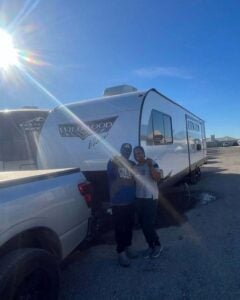
But for Dee and Amber, being a part of the community is as much about giving back as it is about receiving help. They try to help out their fellow RVers as much as they can, both in person and online. One example: leaving campground reviews for their peers on The Dyrt. “We use the Dyrt to find places to stay the night, especially along roads like I-80, which I know from being a truck driver doesn’t have a lot of places to stop,” Amber says. “I’m also trying to get more into leaving reviews and photos because I want to help the next person.”
It’s all paid off; these days, they have an expansive network of RVers across the country that they can tap into.
“People are so kind and welcoming,” Amber says. “There was the fridge thing, but there was also a time last year I had surgery and was on bed rest for six weeks, and people brought food over. That’s the type of community this is.
See Amber’s Profile on The Dyrt
The Dyrt is the only camping app with all of the public and private campgrounds, RV parks, and free camping locations in the United States. Download now for iOS and Android.
Popular Articles:
Articles on The Dyrt Magazine may contain links to affiliate websites. The Dyrt receives an affiliate commission for any purchases made by using such links at no additional cost to you the consumer.
Source: https://thedyrt.com/magazine/lifestyle/amber-and-dee/

